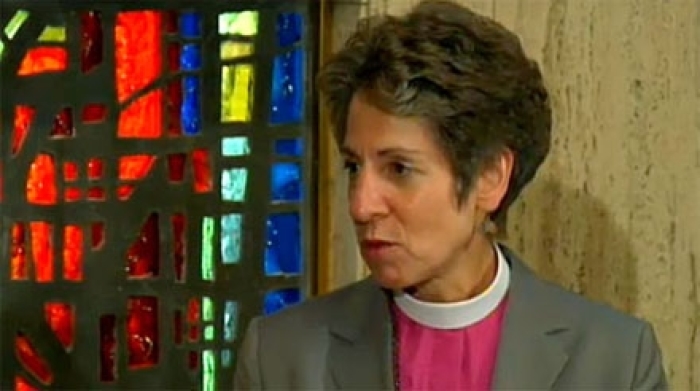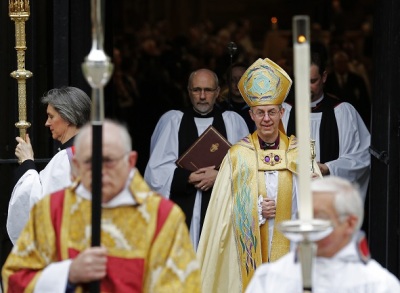Episcopal Church Celebrates 40th Anniversary of Female Ordination

The Episcopal Church celebrated the 40th anniversary of the denomination's ordination of the first women as priests Tuesday. In 1974, 11 women were ordained at the Church of the Advocate in Philadelphia, Pennsylvania.
Celebrations for the occasion included a service held last Saturday at the Church of the Advocate and hosted by the Episcopal Diocese of Pennsylvania.
The Most Rev. Katharine Jefferts-Schori, Presiding Bishop for The Episcopal Church, gave a sermon for the Saturday ceremony.
"Women in all orders of ministry – baptized, deacons, priests, and bishops – can walk proudly today," said Jefferts-Schori. "We can walk proudly, even if not yet in full equality, knowing that the ranks of those who walk in solidarity are expanding."
Jefferts-Schori connected the 1974 ordinations to overall struggles for women in the modern day, especially overseas.
"Gather up the girls married before they are grown, gather up the schoolgirls still missing in Nigeria, and gather up all those lives wasted in war and prison," said Jefferts-Schori. "March boldly, proclaiming good news to all who have been pushed aside, and call them to the table of God, to Wisdom's feast."
Episcopalians celebrated the occasion in other ways, including prayer services at institutes like Temple University and through social media using the Twitter hashtag "#40YearsOrdained."
Known as the "Philadelphia 11," the women were soon joined by four more the following year in Washington, DC.
The milestone comes as another member of the global Anglican Communion has voted to expand female clergy roles. The Church of England, the largest member of the Communion, voted to allow for female priests to be consecrated as bishops.
All 44 dioceses under the Church of England approved the measure in May, which was previously voted down at their 2012 General Synod.

Earlier this month, the General Synod affirmed the dioceses' position, with the head of the Anglican Communion, Archbishop of Canterbury Justin Welby, supporting the move.
"As delighted as I am for the outcome of this vote I am also mindful of those within the Church for whom the result will be difficult and a cause of sorrow," stated Welby.
"My aim, and I believe the aim of the whole church, should be to be able to offer a place of welcome and growth for all. Today is a time of blessing and gift from God and thus of generosity. It is not winner take all, but in love a time for the family to move on together."
One critic of the vote was Archbishop Bernard Longley, Chairman of the Department for Dialogue and Unity of the Catholic Bishops' Conference of England and Wales.
"The decision of the Church of England to admit women to the episcopate therefore sadly places a further obstacle on the path to this unity between us," stated Longley."Nevertheless we are committed to continuing our ecumenical dialogue, seeking deeper mutual understanding and practical cooperation wherever possible."




























